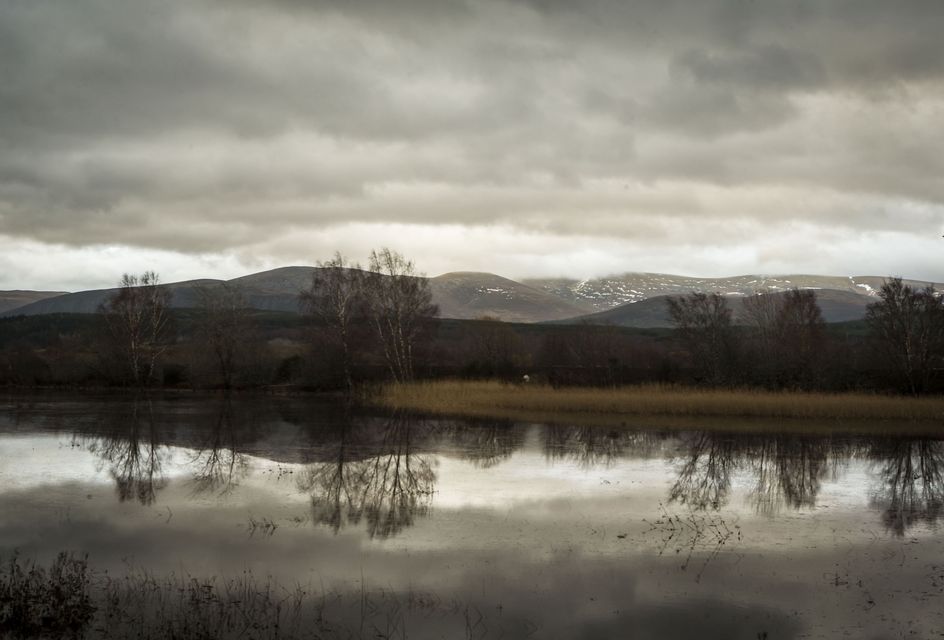A group of pigs that were illegally released in the Cairngorms have been captured and culled.
The feral animals were released in the Uath Lochans area of the Cairngorms National Park on Monday and were located on Tuesday.
Forestry and Land Scotland (FLS) said on Wednesday that the eight pigs had been “humanely culled”.
An FLS spokesperson said: “The feral pigs, classed as a non-native species, were released with an apparent disregard for the illegality of such action and for the potential consequences that this might have on local habitats and wildlife, on other livestock or even on the welfare of the feral pigs themselves.
The pigs were released in the Cairngorms National Park (Danny Lawson/PA)
“All land managers are acutely aware of the issues caused by localised populations of feral pigs in other parts of Scotland and current Scottish Government guidance encourages land managers to control feral pig numbers to manage their impacts on agriculture and the environment.
“In light of these considerations the animals were captured, moved to an FLS location and, with the further expert advice of veterinarians and of Police Scotland, have now been humanely culled.”
A gamekeeping body has said authorities should “act decisively” to prevent “guerrilla rewilding” from becoming the norm following the release of the pigs.
On Wednesday, a spokesperson for the Scottish Gamekeepers Association (SGA) described the release as a “selfish and thoughtless act” that jeopardised the welfare of the animals, as well as posing a risk both to livestock and to the public.
It came after four lynx were illegally released in the park last month, one of which died shortly after they were captured.
The SGA said the release of the pigs appeared to be a form of “guerrilla rewilding” by people “frustrated” at official reintroduction processes.
“Rewilding is becoming popularised as a concept, and there’s a lot of organisations pushing the rewilding mantra,” they said.
“It would appear that this is more a form of guerrilla rewilding.
“Perhaps people or devotees within that movement are becoming frustrated at the standard stakeholder processes which must happen around any reintroduction of species.”
The process, they explained, included “negotiation with the people on the ground that will be most impacted” by any reintroduction – such as farmers and local communities.
“It’s the people who have to deal with the consequences of that, they should ultimately have the final sign-off, because they have got to live with it every day,” he said.
“If that process is not followed, then the authorities have to act decisively to ensure that this type of guerrilla rewilding does not take hold in Scotland as the norm”.
They added that Scottish governments had “emboldened” people to reintroduce species illegally when they took no action following the illegal release of beavers as early as 2001.
The SGA said the government’s decision to instead protect the animals, alongside those reintroduced in an official trial in 2009, set “a tone and a precedent” for this kind of action.
The organisation said that it is not known whether there is any connection between the release of the pigs and the lynx, though it is a possibility.
The park authority, previously, said in a post about the pigs on Facebook: “The animals appear to be relatively domesticated and it is likely that this is an illegal release.
“The park authority condemns any illegal release of animals in the strongest possible terms.”
Scottish Land and Estates (SLE), which supports rural businesses, condemned the “reckless” release of the pigs.
A Scottish Government spokesperson said: “The illegal release of any animal poses a serious risk to their welfare, as well as impacting farmers, land owners, and surrounding communities.
“The Scottish Government will not be reintroducing any large carnivorous species in Scotland.”
